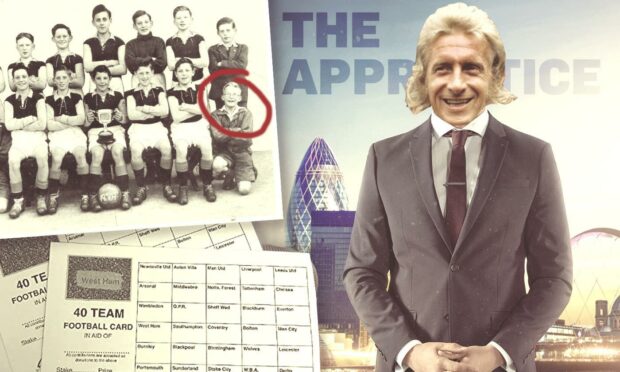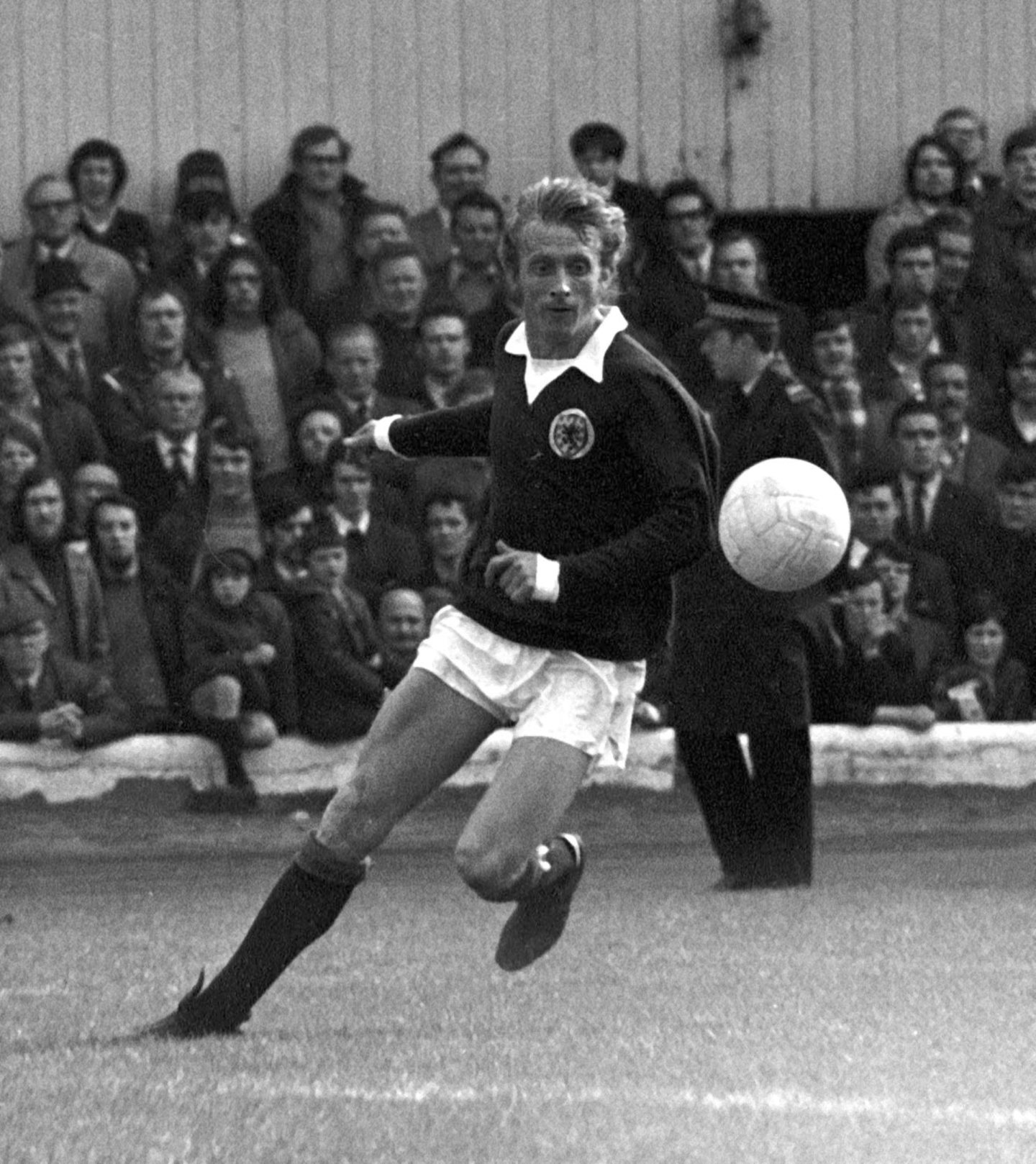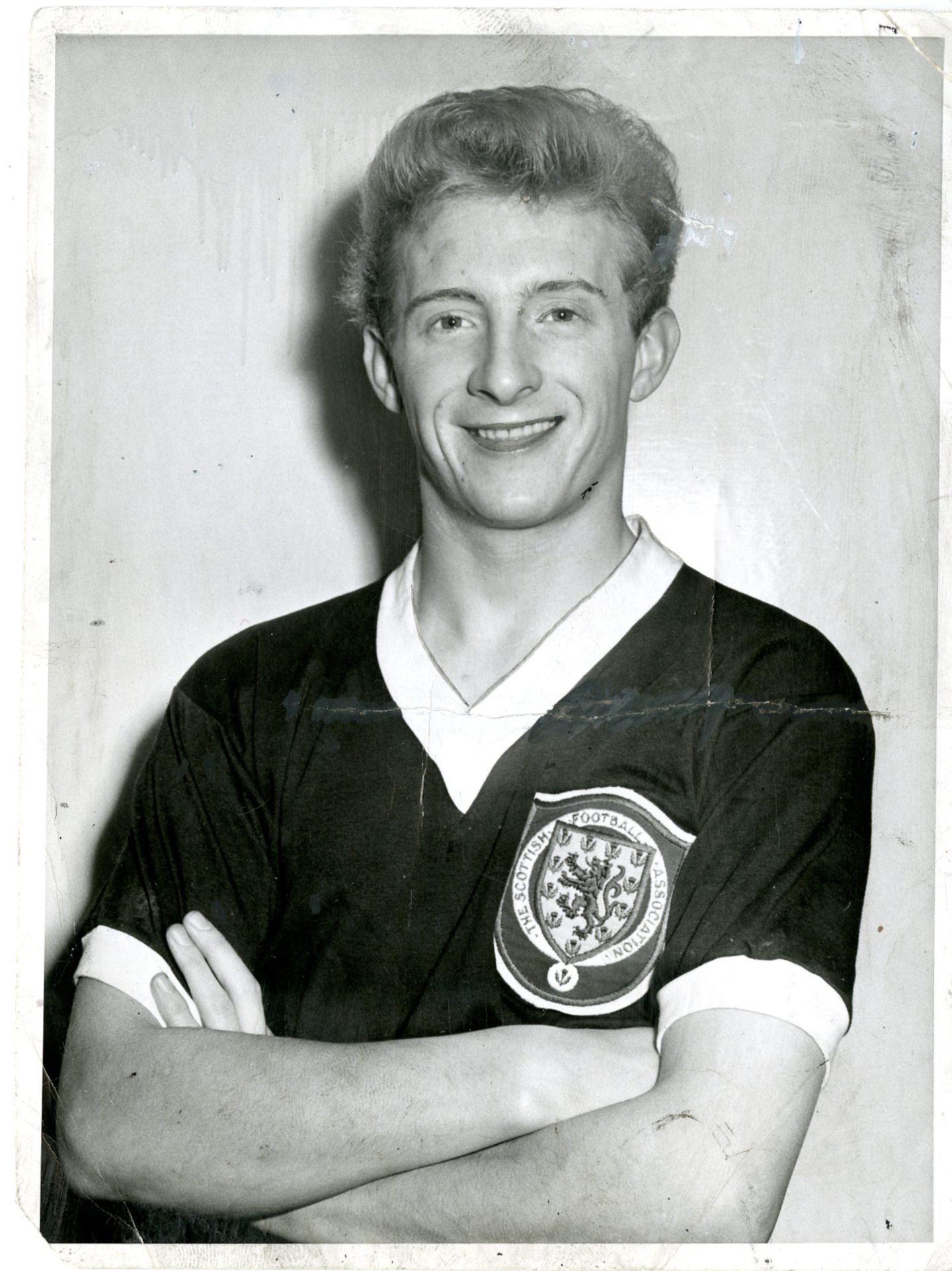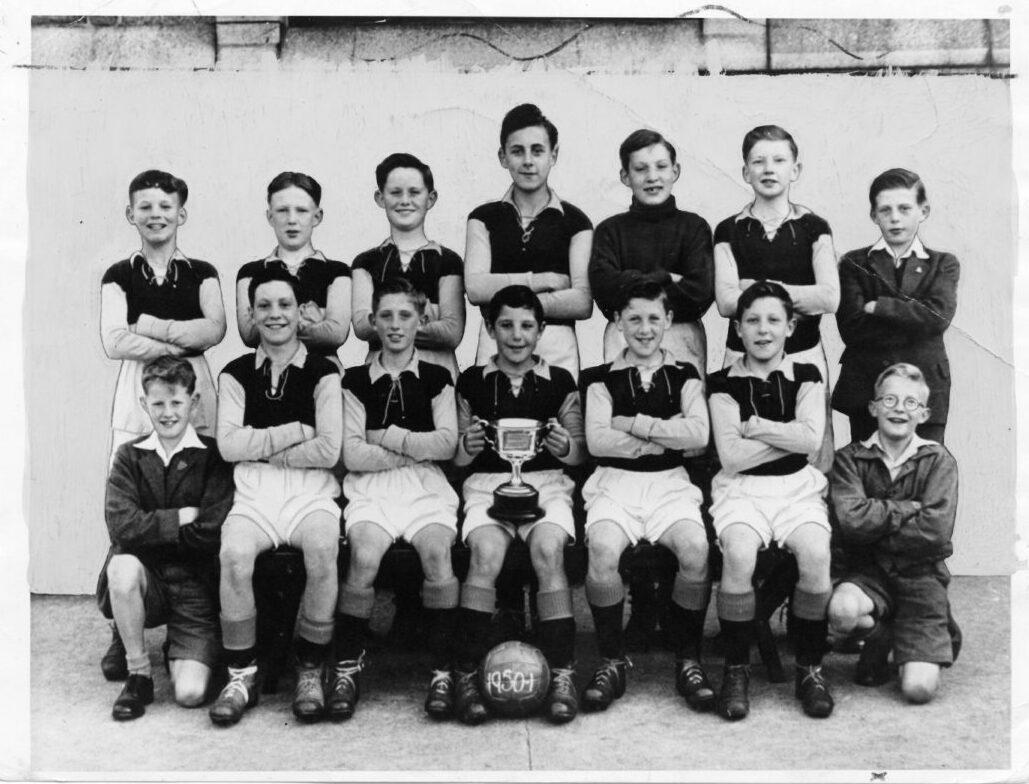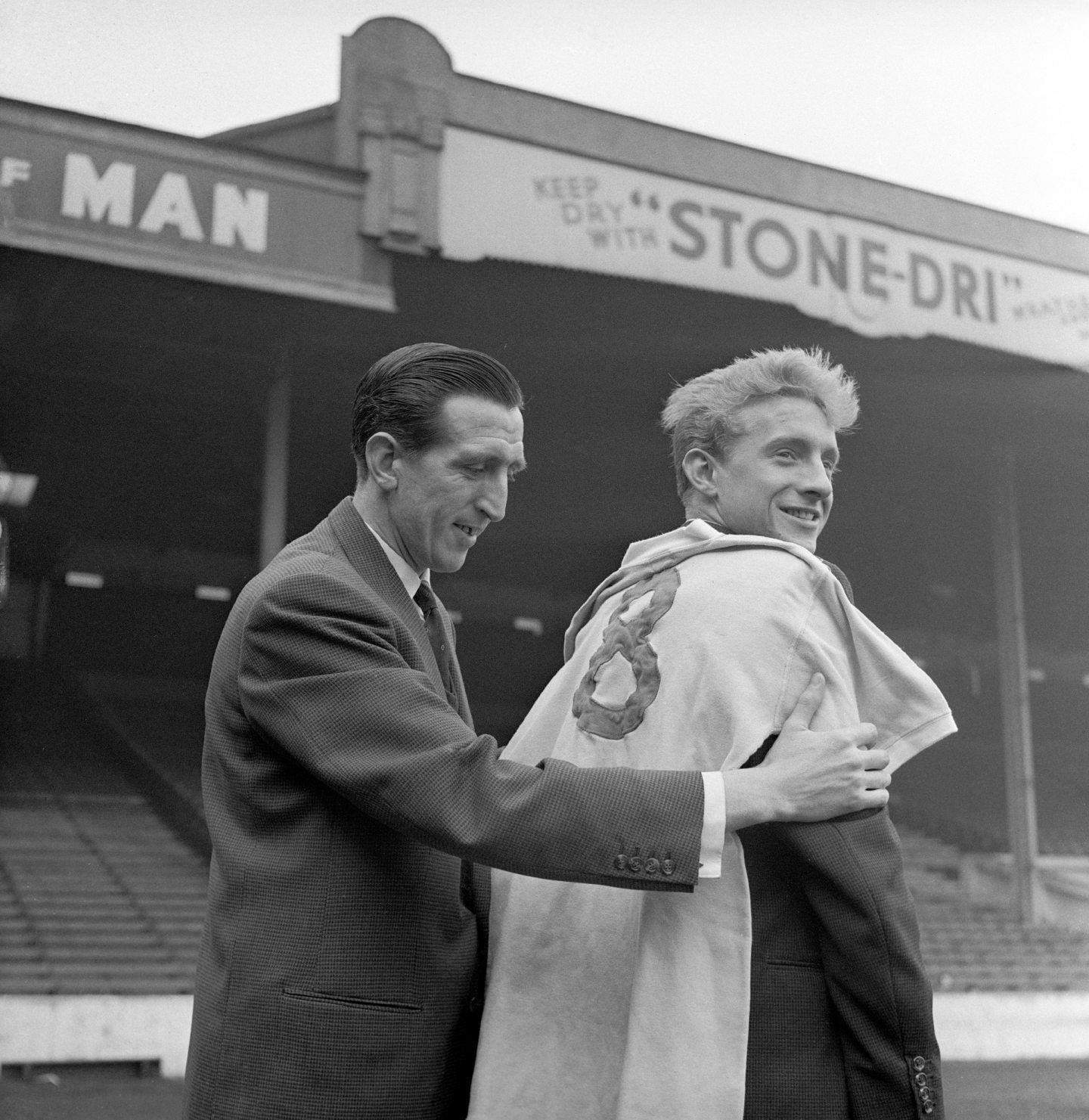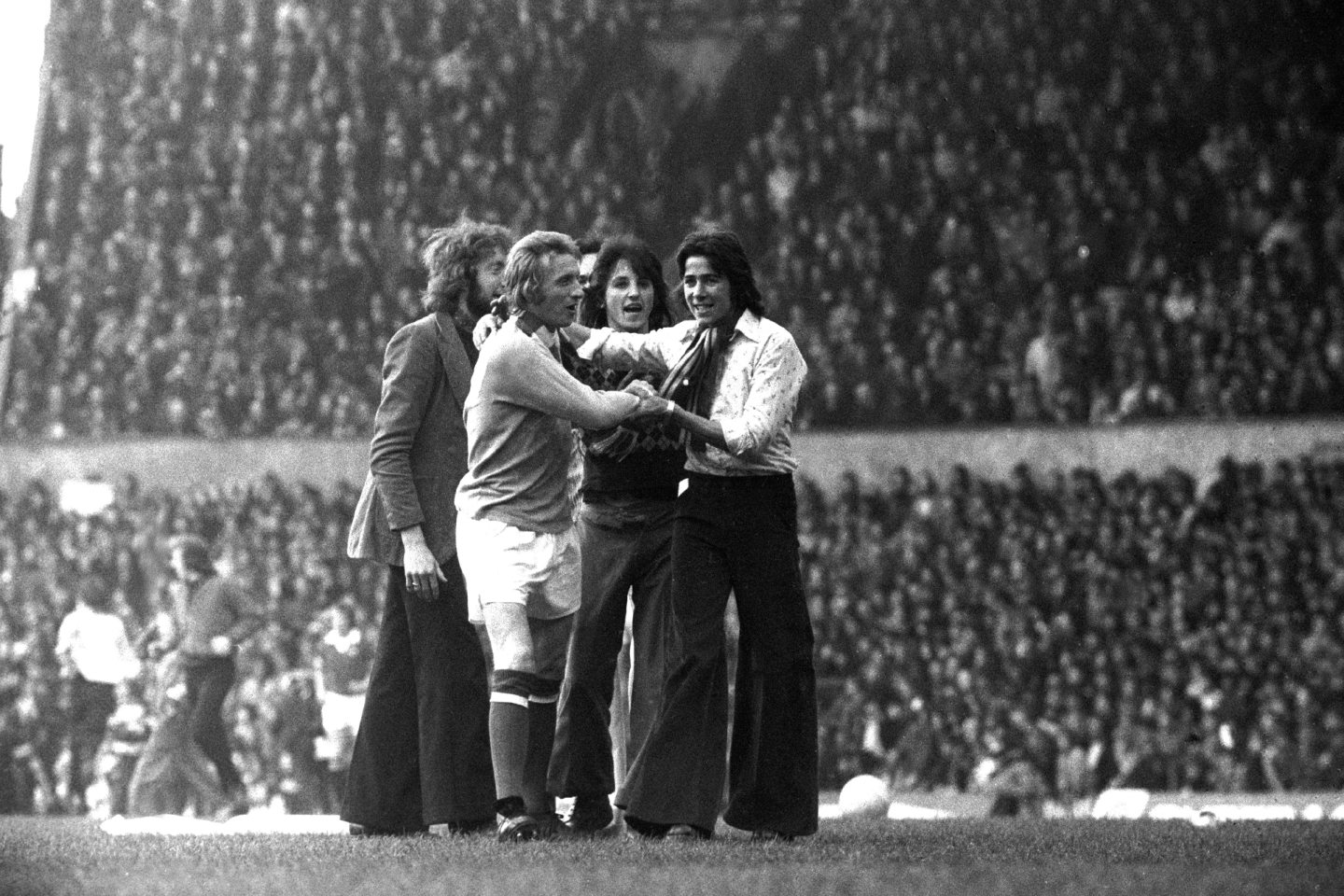Denis Law turned wannabe entrepreneur aged 13 when he decided to raise money to start a football team in Aberdeen.
Law knocked on doors in all weather to sell scratch cards after joining Aberdeen Lads Club and discovering there wasn’t a team for his age group.
He wanted to play more football and showed off astute business acumen to get the Lads Club Colts off the ground after the profits started to roll in.
Law’s love for football has not diminished since the days when he went round the houses with his team-mates to raise enough money for a set of kit.
The king of the Stretford End turns 82 today, although it was never his ambition to become a professional footballer while growing up in Aberdeen.
A forgotten autobiography, written by Law in 1979, described his early upbringing and how he thought he would become a draughtsman after leaving school.
He wrote in his memoir: “As a lad it was never my ambition to become a professional footballer – the idea simply didn’t occur to me.
“Of course, like all the kids in our neighbourhood, I was football daft, but football was a game that we all played – in the streets, in the school playground, anywhere we could – during every spare minute of our lives.
“Professional football was another world, a world with which none of us had any contact, and about which we never thought.
“Footballers were poorly paid in those days and so I suppose that the game had little to offer in the way of a career.
“Boys were expected to learn a trade, and as my best subject was technical drawing, I had always thought I’d like to become a draughtsman.
“The idea of a career in football never entered my head.”
Law was the youngest of seven children and his father was a fisherman who spent all of his working life on the Aberdeen trawlers.
“As a boy I didn’t have a pair of shoes until I was 14,” he wrote.
“Even in the bitterly cold winters when the snow was two or three feet deep with drifts six and eight feet high, I went to school in gym shoes; it was all we could afford.
“My mother would never apply for the free school meals, or the free boots that were available for people like us on low incomes. She was too proud.”
Turning down Aberdeen Grammar
Law’s first experience of playing in a team while growing up in Aberdeen came when he was selected to play for Hilton Primary School under-11s at the age of nine.
Law wore thick NHS glasses to hide a squint and developed a unique system for coping with the problem by learning to play football with one eye closed.
He moved to Kittybrewster School where he played for a further year before it was time to move to secondary after sitting his eleven-plus exams.
“I’d been doing reasonably well academically, so well, in fact, that I managed to pass the exam to go to the local grammar school,” said Law.
“No member of my family had ever been to grammar school, and I was naturally feeling quite proud of myself. The blow fell when I was told that no football was played at my new school; only rugby and cricket. I couldn’t believe it.
“It was like the end of the world if there was to be no football. That was it. There and then I decided that I didn’t want to go to grammar school. I wouldn’t go!”
His mother knew how much football meant to him at that age and agreed that he shouldn’t go to Aberdeen Grammar if he felt so strongly about it.
He eventually turned down his place and instead attended Powis Academy, where he was selected to play for Aberdeen Schoolboys in his first year.
Law wrote: “At Powis I began making steady progress through the various age-level teams, but I still wasn’t getting enough football.
“When I was 13, a group of us joined Aberdeen Lads Club, where they already had several teams, but none for boys of our age. We decided to start our own.
“We needed money so George Geddes, myself and several others began going around the houses selling tickets in a football card lottery.
“For 2p or so, participants punched little pieces of paper bearing the names of teams out of a card, and had the chance to win 10 shillings if their team was the one which was named under the seal at the top of the card.
“We soon established regular rounds and, as the profits rolled in, we bought a set of kit and formed Aberdeen Lads Club Colts.
“Our fixtures were arranged for Saturday afternoons, which meant that we could play for the school in the morning and ALC in the afternoon: two games every Saturday.”
Huddersfield move in 1956
Law never looked back and Huddersfield’s Aberdeen scout spotted him playing for Powis Secondary Modern School and recommended him to manager Andy Beattie.
He signed on wages of £5 a week.
Playing under Bill Shankly, he scored 19 goals in 91 appearances and became a target for Arsenal, Chelsea, Manchester United, Rangers and West Bromwich Albion.
But the Terriers’ price tag was too high for all but Manchester City, who set a new British record transfer fee of £55,000 to take Law to Maine Road in 1960.
He scored 25 goals in 50 games for the Sky Blues.
However, after just one full season, Law moved to Torino for another record fee of £110,000 and was voted the best foreign player in Serie A for that campaign.
Law spent a season in Italy before Matt Busby finally got his man and he signed for Manchester United for another British record of £115,000 in 1962.
Law scored an incredible 237 goals in 404 appearances and was named European Footballer of the Year in 1964.
He was given a free transfer to Manchester City in the summer of 1973, after winning two league titles and the FA Cup during his spell at Old Trafford.
Law amassed 30 goals in 55 Scotland internationals and travelled to the 1974 World Cup in West Germany and won his final cap against Zaire.
He retired from the game in August 1974, aged 34.
Law remains arguably the greatest footballer that Scotland has ever produced.
More like this:
Denis Law recalls how close Rangers legend Jim Baxter was to joining Manchester United
